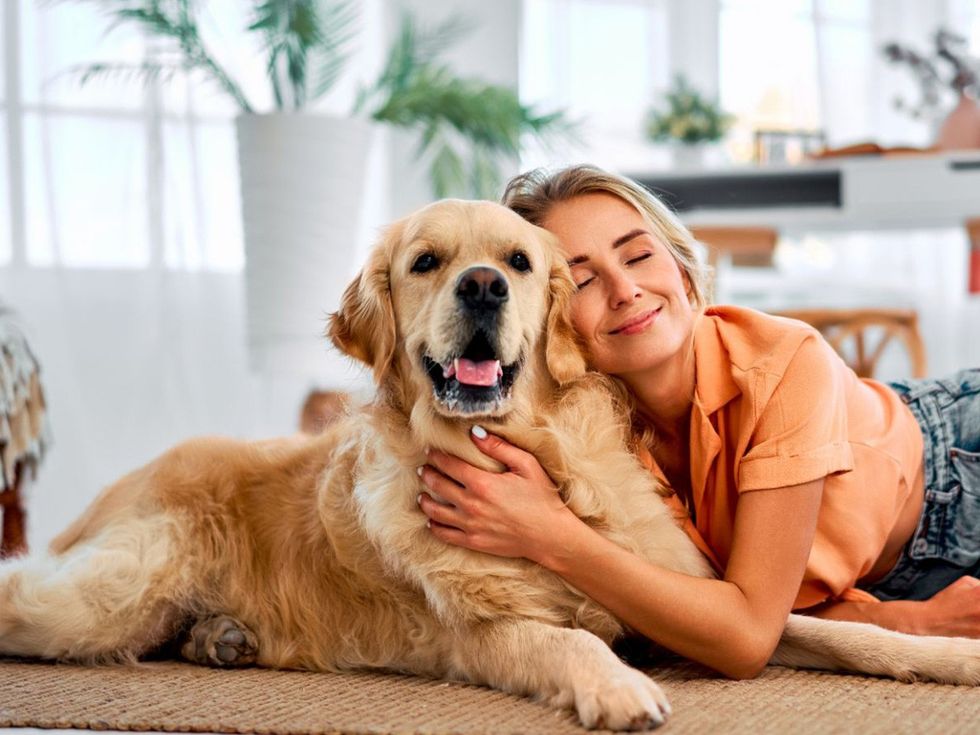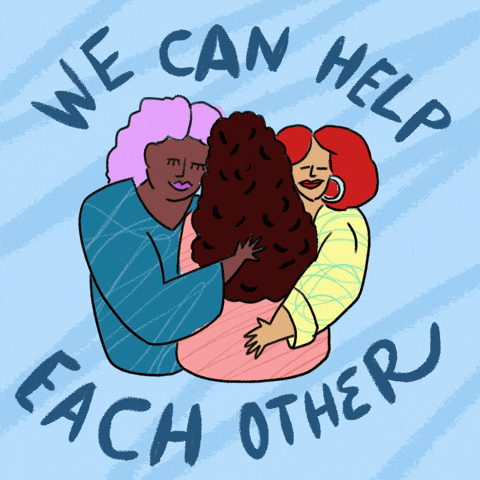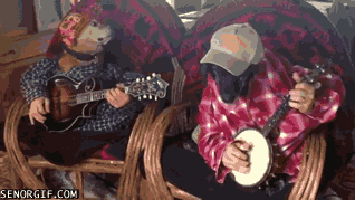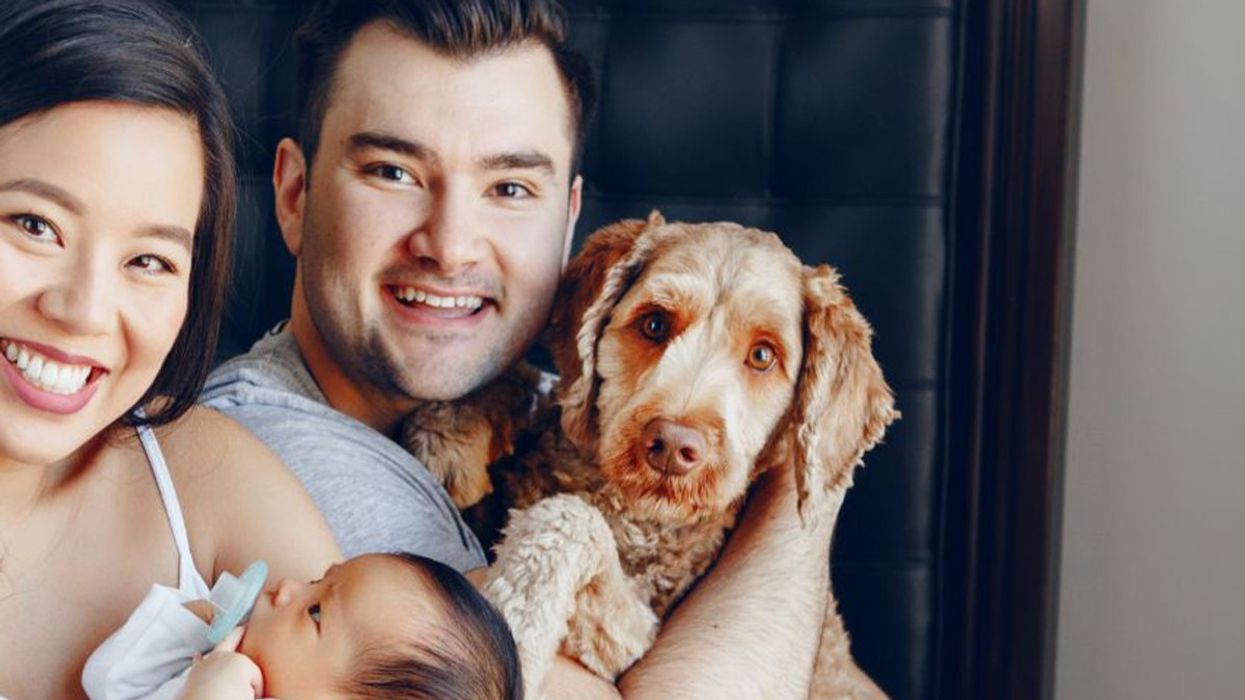Learning how to build healthy relationships with our partners, friends, family, and communities is all part of the life-learning curve. There's the added bonus for some of us in becoming an animal guardian. Successful pet parenting is more than being a kind and involved owner. It's also setting healthy boundaries which can be a bit difficult for a co-dependent person. (If you're on high alert from the word "pet" instead of "family member," this article is perfect for you.)
Relationships have to be one of the most complicated parts of the human experience. It starts off simple with learning to share a plastic, yellow pale with another child in the sand box. It evolves into conflict mastery and relational awareness.
With our pets, however, our relationships are not on equal footing. We are in an ownership role with our pets, meaning the relationship has a different balance of power and influence. We feed them, give them a place to stay, arrange their lives around our schedules, and overall take care of them much like a parent does a child. When in that position, it can be dangerous to depend too heavily on the party that has no authority, power, or influence because, well, it's an animal.

If you find yourself in a co-dependent relationship with your pet, don't worry. There are ways to reverse the dynamic. Here are seven changes to make to cope with codependency and build a healthier relationship with your pet.
1) Understand the issue

Psychology Today describes codependency as "relationship addiction" and lists the following behaviors as tell-tale signs that your attachment to another being is unhealthy:
- Difficulty setting boundaries,
- Prioritizing others over self,
- Fear of rejection or abandonment,
- Low self-esteem,
- Caretaker mentality,
- Difficulty identifying your own emotions,
- Anxiety in relationships
These are pretty clear cut with another human, but how does that relate to your pets? Here's a list of some inner dialogue or comments to match the behaviors that might suggest a problem:
- "That couch is for Lucy. She gets mad if anyone else sits on it so stay off it."
- "I can't make your baby shower on Saturday because Rose my hamster needs checkup."
- "Why doesn't Patches want to cuddle me now?"
- "I only walk Steve five times a day. I'm a horrible owner."
- "I know Cindy is a hermit crab, but she gets lonely. I can't leave her."
- "I only spent $200 on that dog bed, what's the big deal?"
If any of these statements sound like you, you might be a codependent pet parent, which can be dangerous for a handful of reasons. According to Parade, pet behaviorists highlight the following problematic outcomes of codependency with your pet:
- Your pet never learns how to be alone and won't be used to it if you have to be away for the day or night.
- Your pet will develop poor behaviors because you "can't" discipline them out of guilt. Basic training is totally lost.
- Your relationship can become disruptive to others when you insist on bringing your animal to busy restaurants, on public transportation, into stores, or along with you on dates or hangouts with friends.
2) Set clear boundaries

Bear Hugs offers advice for setting boundaries that work for the pet and for you. Offering a family companion a cozy spot of their own can also mean having areas that are pet free like the bed or the couch. Pets have their own blankets so they don't use your clothes or bed spread. Maybe the family dog doesn't need their own chair at the dinner table. These aren't absolutes, but suggestions that most people can understand the reasoning behind.
You're allowed to watch your favorite TV show while the pet lays down for a minute. You don't have to pet the pet every waking moment. It can wait until you have time to give it the love and attention it deserves.
3) Establish a routine

You set the routine, not your pet. If you walk them, have a consistent time. Meals can be scheduled as well as play time. There can be exercise time, quiet time, and grooming time. Animals are happy to learn a pattern of events to which they will look forward. Petspiration writes, "Animals, much like humans, can experience anxiety and stress when faced with unpredictability. A consistent routine provides a sense of security for pets, allowing them to relax and feel safe in their environment."
These behaviors will work well for your pet and for you. Knowing and sticking to the routine can free up your mental space to focus on your own wants and needs.
4) Focus on your own needs

This might feel crazy simple or extremely challenging, depending on your perspective. Sometimes the best actions we can take for ourselves are ones we don't want to or don't think to do. Psychology Today shares that lack of social connection can be more dangerous to your health than obesity, lack of exercise, and smoking. These feelings can drive us to our pets instead of human interaction.
Pets are amazing support in our lives. However, a pet cannot give advice. A pet cannot understand work stress or family dynamic challenges. Humans can empathize with our situations and offer experience and hope for solution. Hug your pet. Love your pet. Get help from friends and professionals.
5) Seek support

Maybe you're a bit embarrassed about how attached you are to your pet, but you're not alone. Lots of people develop codependent relationships with their animals, which means there are people out there who know exactly what you're going through. Seeking a support group can offer encouragement and foster positive change in your life. In a 2021 Camp Bow Wow blog, writer Erin Askeland, CBCC-KA, CPDT-KA cites a report titled "Better Cities for Pets Program Report: 'Pets in a Pandemic'" which found that after the pandemic, "75% of pet owners feel anxiety about having to leave their pet to return to “normal” or go back to the office, travel, etc. and 78% of pet owners are worried about their pet’s anxiety or confusion over their owner returning to work or leaving them alone."
This is a real problem for people and their pets. Seeking support is a great way to tackle and solve it.
6) Avoid anthropomorphism

According to Merriam-Webster Dictionary, anthropomorphism is "an interpretation of what is not human or personal in terms of human or personal characteristics: humanization." Within this scenario of owner and pet, it means giving human characteristics and emotions to your household animal.
Knowing exactly what your dog is feeling can be difficult. The misreading of cues can put the animals and people at risk. In a 2023 study entitled "Owner's Beliefs regarding the Emotional Capabilities of Their Dogs and Cats," The National Library of Medicine writes,
"For example, the reported sources of behavioral cues for detecting guilt/shame in dogs were ‘head posture’, ‘body posture’, and ‘eye contact’, with the most likely scenario being a dog that is holding its head low, contracting its body and avoiding eye contact. In fact, these behaviors are typically associated with a fearful, deferent, or submissive dog, and so scolding the dog when he exhibits these behaviors may exacerbate the dog’s fear/anxiety and have a negative impact on its welfare. Humanization can also increase the risk to humans, as it increases the likelihood of people ignoring signs of discomfort or putting their dog in situations they cannot cope with, believing that their dog would never hurt them."
7) Celebrate the small wins

The healing process can often be slow and difficult. Codependency is a very emotional experience that often wraps itself in the roots of self-esteem. It takes time to rewire habits and build self-worth when navigating feelings of shame and inner criticism. In her blog, "The Importance of Celebrating Small Wins During Trauma Recovery," Gabriele Hilberg, a psychotherapist and international seminar leader writes, "Celebrating small wins isn’t about pretending everything is okay; it’s about honoring your effort, resilience, and growth, one step at a time."
Every pet deserves an owner who truly loves them and dedicates a portion of their lives to make them happy. Pets give us so much genuine love and comfort back, after all. However, it's important that we recognize a balance in the relationship. We don't have to make an amazing experience one that completely wears us out.


















 Revenge can feel easier than forgiveness, which often brings sadness or anxiety.
Revenge can feel easier than forgiveness, which often brings sadness or anxiety. 
 In the past two years, two malaria vaccines have become available for babies starting at 5 months of age.
In the past two years, two malaria vaccines have become available for babies starting at 5 months of age. By exploiting vulnerabilities in the malaria parasite’s defense system, researchers hope to develop a treatment that blocks the parasite from entering cells.
By exploiting vulnerabilities in the malaria parasite’s defense system, researchers hope to develop a treatment that blocks the parasite from entering cells. Created with
Created with 

 Volunteers who drive homeless people to shelters talk with a person from Ukraine in Berlin on Jan. 7, 2026.
Volunteers who drive homeless people to shelters talk with a person from Ukraine in Berlin on Jan. 7, 2026.
 Tasks that stretch your brain just beyond its comfort zone, such as knitting and crocheting, can improve cognitive abilities over your lifespan – and doing them in a group setting brings an additional bonus for overall health.
Tasks that stretch your brain just beyond its comfort zone, such as knitting and crocheting, can improve cognitive abilities over your lifespan – and doing them in a group setting brings an additional bonus for overall health. Overdoing any task, whether it be weight training or sitting at the computer for too long, can overtax the muscles as well as the brain.
Overdoing any task, whether it be weight training or sitting at the computer for too long, can overtax the muscles as well as the brain.

 Amoxicillin is a commonly prescribed broad-spectrum antibiotic.
Amoxicillin is a commonly prescribed broad-spectrum antibiotic.  Chart: The Conversation, CC-BY-ND
Chart: The Conversation, CC-BY-ND
 Counterintuitively, social media can make you feel more bored and lonely.
Counterintuitively, social media can make you feel more bored and lonely. Talking about what you’ve read can add a social dimension to what can be a solitary activity.
Talking about what you’ve read can add a social dimension to what can be a solitary activity.